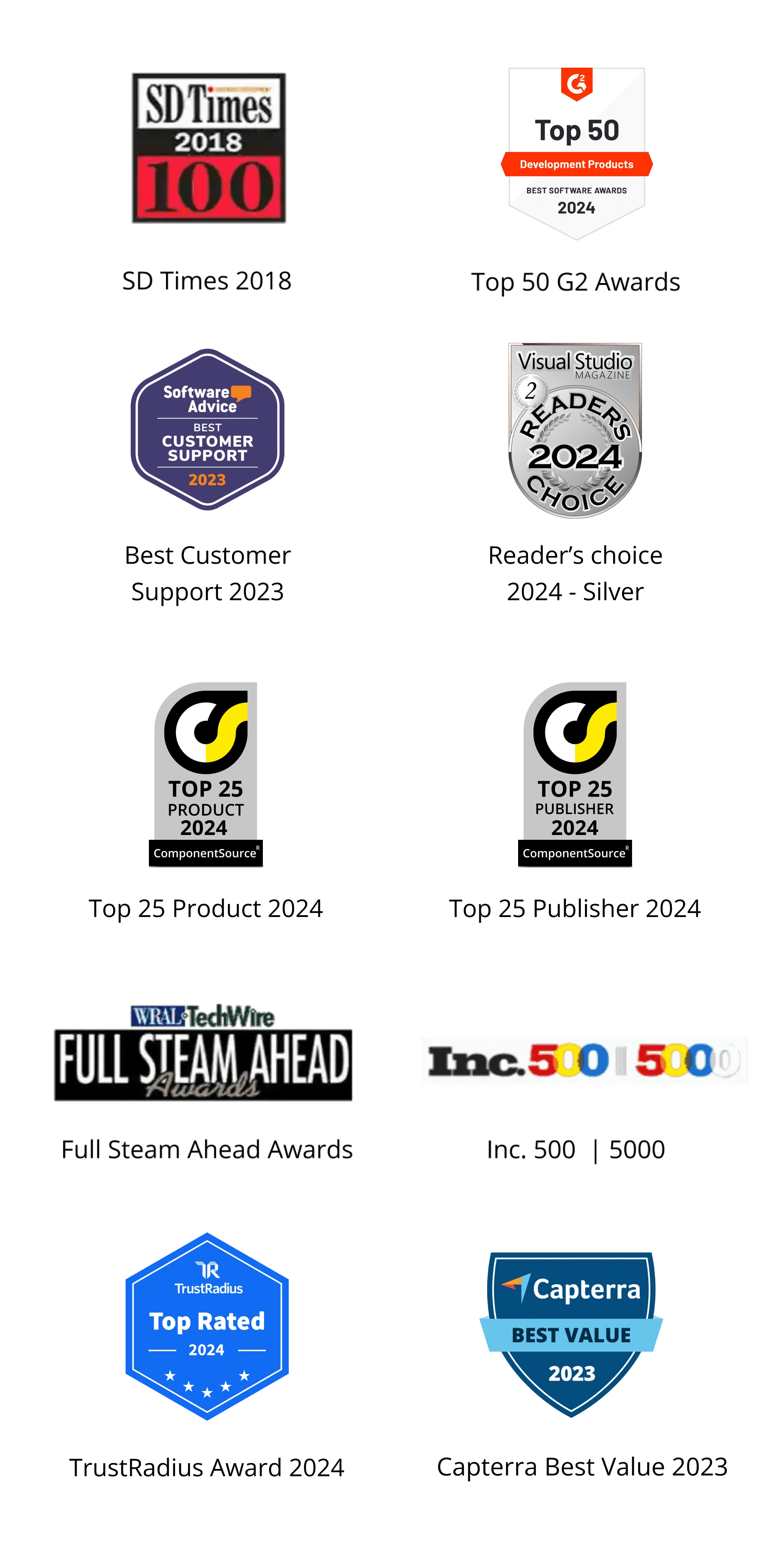Trusted by the world’s leading companies

Overview
The Angular Sidebar, also called the side navigation menu, can be used to simplify the navigation hierarchy. Users can place primary or secondary content alongside the main content in this control. It provides a flexible container that can be expanded or collapsed based on user interactions. Any type of HTML content or component can be placed in the Sidebar for quick access and easy navigation, like quick references, menus, lists, and tree views.
Transition and animation
Different types of slide-out content in the Angular Sidebar component give users the flexibility to view or hide content over or above the main content by pushing, sliding, or overlaying it.
HTML content positioning to the sides
The Angular Sidebar control positions its content to the left or right side of the main content area. This option allows the placement of two sidebars in a page, to the left and right, to show primary and secondary content simultaneously.
Dock the HTML side panel content
When the side content is docked to give the main content more space, the navigation text is represented as a shortened view of icons.
Toggle Sidebar menu
Bind custom actions to an element (hamburger menu or buttons) to toggle the Sidebar.
Responsive Sidebar
Auto closing the Sidebar component’s content allows the main content area to be more readable.


Animate Sidebar
Show or hide the Angular Sidebar with CSS3 animation effects.
Backdrop
Apply a shadow effect to the content area until the sidebar menu closes.


Incorporate Syncfusion controls
Easily integrate any Syncfusion Angular UI control within the Sidebar.
Fit to target
The Angular Sidebar can render within any HTML target element.


Mobile-friendly side navigation menu
The Angular Sidebar component’s responsive mode gives an adaptive, redesigned UI appearance for mobile devices.
Media query
Control the expand and close behavior of Angular Sidebar based on screen resolution.
Developer-friendly APIs
Developers have control over all the UI elements and behaviors of the component to provide the best user experience with a rich set of developer-friendly APIs.
Built-in themes
The Angular Sidebar component is shipped with several built-in themes: Material, Bootstrap, Fabric (Office 365), Tailwind CSS, and high contrast.
Users can customize any one of these built-in themes or create new themes by either simply overriding SASS variables or using our Theme Studio application.
Angular Sidebar code example
Easily get started with the Angular SideBar using a few simple lines of HTML and TS code, as demonstrated in the following. Also explore our Angular Sidebar example, which shows you how to render and configure a Sidebar in Angular.
<ejs-sidebar id="default-sidebar" >
<div class="title"> Sidebar content</div>
</ejs-sidebar>
<div>
<div class="title">Main content</div>
<div class="sub-title">
Content goes here.
</div>
</div>import { Component } from '@angular/core';
@Component({
selector: 'app-root',
templateUrl: 'app/app.component.html',
styleUrls: ['app/app.component.css']
})
export class AppComponent {
}Other supported frameworks
Sidebar is also available in our Blazor, React, Vue, and JavaScript frameworks. Check out the Sidebar in different platforms from these links:
Angular version compatibility
The Angular Sidebar is kept up to date to make it compatible with the latest Angular version.
Not sure how to create your first Angular Sidebar? Our documentation can help.
I’d love to read it now145+ ANGULAR UI COMPONENTS
Frequently Asked Questions
Why should I choose Syncfusion’s Angular Sidebar?
Syncfusion Angular Sidebar provides the following features:
- Expanded and collapsed states, depending on the resolution.
Highly customizable component with docking options.
An effective feature sets component in an opened or closed state depending on the screen resolution.
- Support for display of short notifications about the content in docked mode.
- Support for all modern browsers.
- Touch-friendly and responsive UI.
Extensive demos and documentation so you can get started quickly with the Angular Sidebar.
Where can I find the Syncfusion Angular Sidebar demo?
You can find our Angular Sidebar demo, which demonstrates how to render and configure the Sidebar.
Can I download and utilize the Syncfusion Angular Sidebar for free?
No, this is a commercial product and requires a paid license. However, a free community license is also available for companies and individuals whose organizations have less than $1 million USD in annual gross revenue, 5 or fewer developers, and 10 or fewer total employees.
How do I get started with the Syncfusion Angular Sidebar?
A good place to start would be our comprehensive getting started documentation.
Our Customers Love Us


 Documentation
Documentation
Awards
Greatness—it’s one thing to say you have it, but it means more when others recognize it. Syncfusion® is proud to hold the following industry awards.















